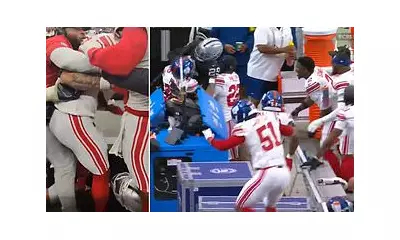
British football enthusiasts are bracing themselves for what could become the most challenging tournament viewing experience in recent memory as England's World Cup campaign in America threatens to disrupt sleep patterns and test fan loyalty with unprecedented late-night kick-offs.
The Unsociable Hour Dilemma
With the 2026 World Cup hosted across North America, England's group stage matches are projected to kick off as late as 2am UK time, creating what many are calling a "football fan's nightmare." The time zone difference means supporters face the difficult choice between sleepless nights or missing live action entirely.
Broadcast Uncertainty Compounds Problems
Compounding the scheduling woes, the television rights for the tournament remain unsecured in the UK, leaving fans in limbo about where they'll be able to watch the matches. The current deal with the BBC and ITV expires after the 2024 tournament, creating genuine concerns that the 2026 World Cup might move behind a paywall.
"The combination of ridiculously late kick-offs and potential subscription requirements could make this the least accessible World Cup for British fans in modern history," noted one football broadcasting analyst.
Historical Precedent Offers Little Comfort
While UK audiences have endured late-night sporting events before, including Olympic coverage from Asia and World Cup matches from Japan and South Korea, the North American time zones present a particularly brutal schedule. East Coast venues could see 9pm local kick-offs translating to 2am UK time, while West Coast matches might not begin until 5am British time.
What This Means for England Supporters
- Potential 2am starts for crucial group stage matches
- Unresolved free-to-air broadcast rights
- Possible requirement for expensive subscription services
- Work and family life disruption during the tournament
- Pub and public viewing venue uncertainties
The Football Supporters' Association has already begun raising concerns about the impact on match-going culture and the potential exclusion of traditional pub viewings that have characterized previous tournaments.
As one lifelong England supporter lamented, "We've followed the team through time zones before, but this combined with the broadcast uncertainty feels like a perfect storm against the ordinary fan."





